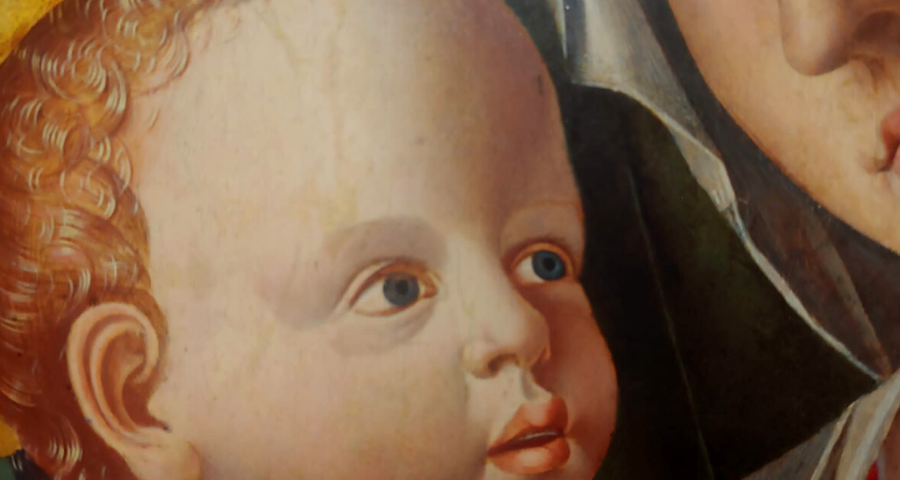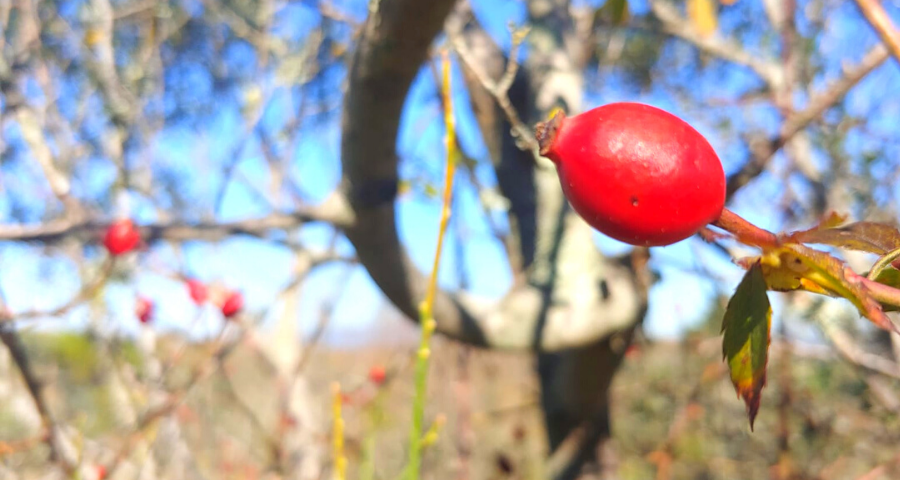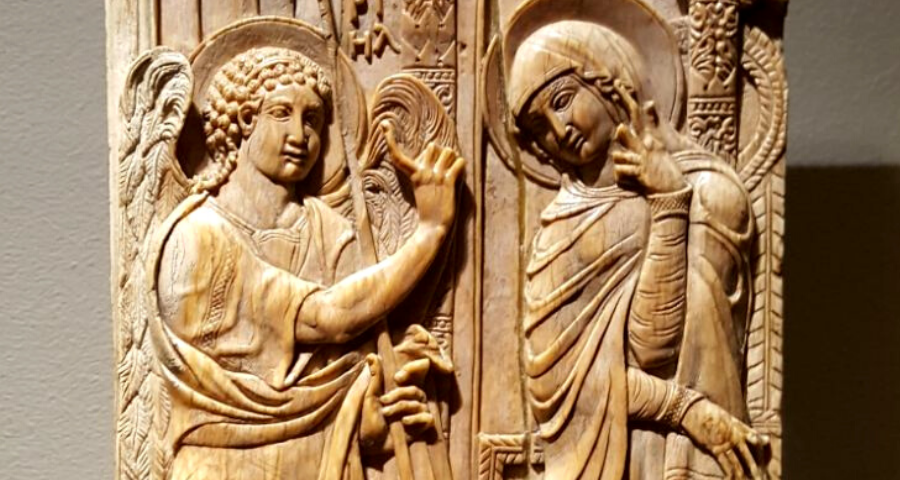The logic of charisms/5 – The evolution of each community depends on how it exercises fidelity.
by Luigino Bruni
Published in the Avvenire 19/09/2021
This is what faithful is: the wall that crumbles, but is not alone in this, for it also crumbles with the statue, which stands at the top...
Vladimir Holan, Fidelity (poem)
Unfortunately, it is common that practices and traditions that allowed the success of a charismatic work in the first season of its foundation eventually turn from virtues into vices.
Fidelity is essential in every human experience, in charismatic communities it constitutes almost everything. It is articulated on several levels: the fidelity of the founder to the charism received, the fidelity of the members of the community to the charism and to the founder. The possibility for a community to continue a good life after its first season of foundation, however, depends on its ability to evolve the way in which it exercises fidelity.
At the beginning, when a charism gives life to a community, fidelity has its specific and necessary set of notes. The members of the community live their fidelity as an unconditional adherence to the charism and to the founder. They do not feel that they have to make any changes to the charism, as it is presented and proposed: each and every one of them must only make sure that they are performing the same score. Because in this first phase the perfection and completeness of the score-charisma appear extraordinary and unique, a total novelty. Faced with such satisfying completeness, no one feels the need to develop different variations or notes. There is nothing more useful, wise and intelligent to do at that point than to put all your talents into playing that one celestial work, which is about to change the world. And if I was a harp player when arriving in the community, but the harp was not included in the community score, then I would immediately need to learn how to play the guitar or the flute. The excellence of this first season of the charism lies in the search for the perfect, symphonic and choral execution of that one single community theme. No composers are needed, only excellent orchestral players. The original score of the charism does not need creativity or innovation, and its only interpreter and conductor is the founder/s. This does not mean that the people involved do not have talent. On the contrary, they often have many talents, but they orient them to that one single common mission, and use them only if functional to this one mission. To use a model by economist Joseph A. Schumpeter, at first the only innovator is the founder, all the other members are imitators, who use their energies to replicate the same "enterprise".
This interpretation of absolute fidelity is closely associated with another kin word: radicalism. The more radical one is, the more faithful, the more the personal and subjective dimensions remain in the background, until they eventually disappear. Radicalism thus becomes the unit in which to measure fidelity.
Without this management of fidelity and radicalism it is virtually impossible for a charismatic movement to be born and above all to develop in any meaningful way. The founder's spiritual energy is amplified and multiplied by the faithful following of his or her companions, to reach levels of effectiveness and efficiency unknown even to the most successful of companies. The energy that emanates from a charism in its founding phase is immense, much of which depends on all the moral and spiritual energy freely donated by the founder's followers, in a mirroring game where they reflect each other in infinity. It is a supernova of the spirit, a stellar explosion that releases an almost infinite magnitude of light and energy - in a few weeks or months it releases more energy than the sun releases in its entire existence. Whoever has the good fortune to experience the birth of a charism first hand, experiences a light and an energy greater than that of an entire "ordinary" life in only a few months, leaving its "tao" imprinted in one’s flesh forever. Furthermore, those who experience this radical fidelity do not feel expropriated or manipulated because it is the only thing they deeply and freely wish to do, recognizing it not as something external, but on the contrary, as something very intimate. Because by being faithful to the charism he or she is also faithful to the deepest and truest part of him or herself. Viewing or interpreting the origin of spiritual movements through the eyes of conventional sociological and psychological paradigms almost always produces colossal interpretative errors - and we view and interpret so many of them.
However - and this is the point - this way of living and experiencing a faithful and radical following comes to an end at a certain point, and it is a good thing that it does, even if it almost always ends too late. Because if it continues into subsequent generations, what was the cause of yesterday's success will immediately become the cause of the irrepressible collapse of today and tomorrow. The very following of the apostles towards Jesus changed after the Resurrection. Fidelity and radicalism must remain and possibly grow, but the modality of following both the charism and the founder must substantially change. This is a difficult undertaking, because the only form of fidelity that the community knows is that of yesterday, on which it was formed, and has grown, generating authentic miracles. It is on that fidelity that people have built their identity. The community therefore has to make an almost insurmountable effort to even imagine a different form of fidelity. And so, when the founder is no longer there, the followers attempt a shortcut: yesterday's radical and unconditional fidelity is now transferred intact onto the words, the acts and the works of the founder who is no longer there. Thus the myth of the founder is born: one can still be faithful to the charism today if one is thoroughly faithful to every word that the founder pronounced in life. In other cases, yesterday's fidelity passes directly on to the successor, who is then treated as a sort of "reincarnation" of the founder. Both are very serious errors, even if they are almost always done in perfectly good faith. Why?
The relationship between a charism and its founder is complex. They grow together, they change together, they co-evolve. The words that a founder says at the beginning of his or her experience are almost never the ones he or she says towards the end. The charism is a seed that grows in the soil that welcomes it, in a symbiotic relationship with the environment and with history. The founder goes through trials, changes his mind, experiences regressive phases, involutions, dark nights, and he makes mistakes. As long as the founder is alive, the loyalty of his followers to immature words or idiosyncrasies has a meaning and value too, because honest founders are able to change their minds thanks to the paradoxical (and costly) loyalty of those close to them. However, when the founder ends his time (by dying or leaving the scene), if the members of the community begin to think that the founder today is constituted by his words and gestures yesterday, even if they do not realize it, they stop believing that the charism is still alive.
So when a community believes it will encounter the charism of its founder's in its past, it is the faith of the charism that is in crisis. It loses contact with history. The founder's words yesterday were mixed with the pain and hopes of his people then, with the issues and questions of his time. Returning to those words in order to shed light on the problems of today means not taking our history seriously, despising the value of the pain and the hopes of the men and women of today, of their questions and issues, not taking the theological value of the incarnation seriously (and this is the ancient Gnostic temptation). The answers today must instead come from the charism experienced today, there is no other way. All the words and gestures of the founder can only serve as inspiration now, the dawn not the ending of a discussion. Herein lies almost entirely the maturity and responsibility of a charismatic community. Clearly, mistakes are easily made while exercising this, because this new form of fidelity will sometimes border on infidelity, passing through many border areas, but it is only in this imperfection that life can be reborn.
Certainly the founder's heritage of writings, gestures and acts has and will always have a central role in a charismatic community, it is one of the places where the founder lives on; but if he only lives there, the charism will actually end up dying. Because the first and foremost place where one can continue to meet the founder after his death is within his community (which often exceeds its formal boundaries), in the people who within the same charism continue the same history. Hence, whoever succeeds the founder should mark a strong discontinuity with the past – what would have happened to the Church if Peter had dealt with the twelve as Jesus did?! It is above the members within the inner most intimate circle who make this discontinuity difficult, the strongest resistance to renewal is found within the community itself.
The fidelity that once was an unconditional adhesion, must become a dissonant, divergent, lateral, risky fidelity today. The development of new themes in the charism score requires "entrepreneurs-innovators” and no longer mere imitators. The creativity that was employed yesterday, entirely at the service of performing the same piece, should now orient itself in developing new melodies, related to the first one, yet different. More composers, less orchestral musicians. However, all this is possible if the community and its leaders truly believe that the charism is still alive. And hence, that that splendid score of the first generation was only the first, not the only one, perhaps not even the most beautiful to be performed. It was the dominant theme of all the works to come: the seed of the future, the spiritual DNA of what would be born.
However, even this is extremely difficult, because people who have been accustomed for years, for decades, to a fidelity understood as a total alignment with certain words, directives and thoughts that once came from outside already ideal and perfect, are no longer in the anthropological and ethical condition to be creative. Even if they wanted to, they just do not know what to do. While not having practiced a creative use of fidelity, now that the muscle is needed it is (almost) atrophied. Having spent our whole life in an absolute, radical, infinite fidelity, by now we have crumbled to the wind, the ice, and the storms. A life can be splendid even like this. Because while our wall was dissolving we caught a glimpse of the angels, and once we also briefly discerned God. However, if we wish to stop the statue at the top (the charism) from crumbling as well, we need to use our last energy resources making sure that the new members of the community succeed in developing another form of fidelity, no less radical, simply different.
Finally, a recommendation from us to the founders still in life would not be out of place: do not allow your "composers" to become stale and atrophied, because it is among them that you will find the possibility of a life after-you. Even an orchestra with few elements can perform a masterpiece, while others are composing the masterpieces of tomorrow. It will not be your writings and your words that will guarantee the future: it will be your people educated to freedom and trust that will save you, as long as at least one of them is left standing. The future is the name of the son.
A charism does not coincide with the person of the founder. It exceeds him. It continues to grow, to live, to love, learn, teach even after his death. A “profile" of the works of a deceased artist is made with the work that he created in life; a "profile" of a charism must be done with the works of the founder as well as with those that the community has continued to compose. Which ones are the most beautiful?













